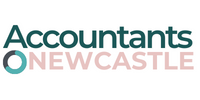Are you looking to streamline your business operations and improve financial management? Accounting software may be the solution you need. This article will explore what accounting software is, how it works, and the many benefits it can offer your business.
From automating financial processes to providing real-time financial information, accounting software can revolutionise how you manage your finances. We will also discuss the different types of accounting software available, how to choose the right one for your business, and address some common FAQs about accounting software.
Let’s dive in and discover how accounting software can help take your business to the next level.
What Is Accounting Software?
Accounting software is a specialised application that streamlines financial transactions and data processing within enterprises by integrating advanced technology.
These software solutions play a crucial role in automating tasks such as invoicing, payroll management, and expense tracking, enhancing the overall efficiency of financial processes. They provide real-time insights into a company’s financial health by generating detailed reports and analyses based on accurate data.
Automation reduces the risk of errors and ensures compliance with regulatory requirements, improving the overall accuracy of financial record-keeping. Modern accounting software has robust security features to safeguard sensitive financial information from cyber threats, offering a secure and reliable platform for managing financial operations.
How Does Accounting Software Work?
Accounting software automates various financial processes, ensuring data security and accuracy in managing enterprise financial transactions.
Using advanced algorithms and machine learning, accounting software efficiently categorises transactions, reconciles accounts, and generates real-time financial reports. This automation saves valuable time for finance teams and minimises human error, thus enhancing overall accuracy.
Additionally, integration capabilities allow these systems to seamlessly connect with other business applications, streamlining operations and ensuring a cohesive data flow across different departments. The robust security features integrated into accounting software also safeguard sensitive financial information, protecting it from potential cyber threats and unauthorised access.
What Are The Benefits Of Using Accounting Software?
Utilising accounting software offers numerous benefits, such as streamlining operations, improving business efficiency, and maintaining better financial health.
One of the key advantages of using accounting software is the automation of procurement processes, which can significantly reduce manual workload and potential errors in purchasing goods and services. This automation allows for quicker processing times, better tracking of expenses, and improved budgeting accuracy.
With the help of accounting software, businesses can conduct more in-depth financial analysis by generating detailed reports, analysing key performance indicators, and forecasting future financial trends. This not only aids in making well-considered choices but also enables companies to identify areas for cost-saving and revenue maximisation.
Effective vendor management becomes easier with accounting software as it provides tools to efficiently track vendor transactions, manage accounts payable, and negotiate better terms. This leads to stronger relationships with suppliers, improved cash flow management, and better control over the company’s financial stability. Integrating accounting software can transform how businesses handle finances, making them more agile, competitive, and financially secure.
Automates Financial Processes
One key benefit of accounting software is its ability to automate financial processes, including invoice processing and other repetitive tasks, leading to greater efficiency and accuracy.
By streamlining invoice processing, accounting software enables organisations to digitise and manage invoices from creation to payment, significantly reducing the time and effort required. The software can track all financial transactions in real time, providing instant access to critical data for well-considered choices. Automation minimises the risk of manual errors, ensuring the accuracy and reliability of financial records. Integrated features for monitoring inventory levels and managing purchase orders enhance the software’s utility by offering comprehensive financial insights and control over operational processes.
Increases Accuracy And Efficiency
Another significant advantage of accounting software is its capacity to enhance accuracy and efficiency in financial operations, enabling better financial analysis and decision-making.
By automating repetitive tasks such as data entry and reconciliation, accounting software reduces human errors that can occur during manual processing. This saves time and ensures that financial information is always up-to-date and accurate. With real-time tracking and reporting capabilities, businesses can quickly generate important financial reports, such as balance sheets and income statements, to gain valuable insights into their financial health.
Provides Real-time Financial Information
Accounting software provides real-time financial information to enterprises, allowing for prompt decision-making and a comprehensive view of financial health.
Through accounting software, businesses can access up-to-date financial data, which is crucial in today’s fast-paced business environment. This advanced technology allows organisations to make informed decisions quickly and adapt to market changes with agility. Companies can tailor the system to their specific needs by leveraging custom accounting software solutions, ensuring accurate and relevant financial insights. Real-time financial information enhances operational visibility, enabling stakeholders to monitor key performance indicators and track financial trends efficiently.
Improves Decision Making
By facilitating data integration and analysis, accounting software is crucial in improving business decision-making processes, leading to more informed and strategic choices.
Through comprehensive reporting tools, accounting software also enables businesses to easily generate detailed financial reports. With just a few clicks, managers and stakeholders can access key metrics and performance indicators to track their company’s financial health in real-time. This real-time visibility enables quick identification of trends, anomalies, or areas that require immediate attention, enhancing the overall efficiency and agility of the decision-making process.
What Are The Different Types Of Accounting Software?
Various types of accounting software are available, ranging from specialised solutions to custom accounting software tailored to specific business needs.
General ledger systems are essential for maintaining the financial health of an organisation by tracking income and expenses in one central location.
On the other hand, inventory management solutions assist in monitoring stock levels and optimising inventory turnover.
Additionally, data security is crucial to accounting software, ensuring that sensitive financial information is protected from unauthorised access.
General Ledger Software
General ledger software is a fundamental type of accountancy software that helps businesses maintain financial health by organising and tracking financial transactions in a centralised system.
One of the key purposes of general ledger software is to provide a comprehensive view of a company’s financial status through real-time tracking of revenues, expenses, assets, and liabilities. This software is crucial in generating accurate financial reports and statements, essential for well-considered choices and compliance with accounting standards. With the advancement of technology, modern general ledger software often integrates features like automated data entry, customisable reporting tools, and cloud-based accessibility, making financial record-keeping more efficient and accurate.
Accounts Payable/Receivable Software
Accounts payable/receivable software streamlines the management of supplier transactions, invoices, and payments, enhancing efficiency in accounts payable and receivable processes.
By automating the tracking and processing of invoices from receipt to payment, accounts payable/receivable software reduces manual errors and speeds up the payment cycle. This software also facilitates supplier management by maintaining accurate records of supplier details, contract terms, and payment history. It provides valuable insights through reporting tools, allowing businesses to effectively analyse spending patterns and forecast cash flow needs. In addition, integrating such software with procurement processes optimises supplier interactions. It ensures timely payments, helping companies manage their finances more efficiently.
Inventory Management Software
Inventory management software enables businesses to track inventory levels, optimise procurement processes, and optimise stock control for improved operational efficiency.
By utilising inventory management software, companies can accurately monitor stock levels in real-time, eliminating the risk of overstocking or stockouts. This leads to reduced storage costs and minimised deadstock, ultimately enhancing the business’s financial health. The software facilitates efficient purchase order management, automating the ordering process and ensuring timely replenishment of goods. Improved vendor coordination is another key benefit, as it allows for better communication with suppliers, enabling businesses to negotiate favourable terms and maintain strong partnerships.
Payroll Software
Payroll software automates the calculation of employee wages, taxes, and benefits, ensuring accurate and efficient payroll processing within enterprises.
This software significantly reduces human error risks by leveraging sophisticated algorithms and predefined formulas, saving time and resources. Payroll systems easily handle various complexities, such as tax deductions, overtime calculations, and benefits administration. These tools play a crucial role in ensuring compliance with regulatory requirements and labour laws, mitigating organisational legal risks. The integration of advanced technologies like cloud computing and machine learning has further enhanced the capabilities of modern payroll software, enabling seamless data management and real-time reporting.
How To Choose The Right Accounting Software For Your Business?
Selecting the appropriate accounting software for your business involves assessing specific operational requirements, compatibility with existing systems, and integration capabilities.
First and foremost, analyse your business needs to ascertain the features and functionalities required from the accounting software. Consider the scale of your operations, industry-specific requirements, and future growth plans.
Next, evaluate how well the accounting software integrates with other systems essential for your business, such as CRM or inventory management tools. Prioritise data security features to safeguard your financial information and ensure compliance with regulations.
Look for advanced technology solutions that can enhance business efficiency, such as automation tools, cloud-based capabilities, and mobile accessibility.
Identify Your Business Needs
The first step in choosing accounting software is identifying your business needs, including financial requirements, operational challenges, and goals for financial health.
In terms of financial requirements, it is crucial to determine the level of complexity your business deals with in terms of transactions, reporting, and compliance. Assessing operational challenges involves looking at areas where efficiency can be improved, such as automation of processes or integration with other systems. Setting clear financial health goals will help select software that provides robust financial analysis tools to track performance and make informed decisions.
Consider Your Budget
When choosing accounting software, it is essential to consider your budget constraints, ensuring that the selected solution aligns with financial transactions and operational requirements.
By carefully assessing the cost-effectiveness of different options, businesses can make informed decisions that will streamline their financial processes and help maximise returns.
Scalability is another crucial factor that should be considered as the software needs to grow alongside the company. Ensuring that the software integrates seamlessly with the procurement processes and automates various tasks is key to boosting efficiency and accuracy in financial record-keeping.
Making a wise investment in accounting software can greatly impact how businesses manage their financial operations.
Research And Compare Different Software Options
Conduct thorough research and compare various accounting software options to assess their features, technology advancements, and suitability for your business operations.
When searching for the ideal accounting software, it’s crucial to consider the specific features that align with your business needs. Look for functionalities such as automated invoicing and expense tracking, seamless bank integration, robust reporting capabilities, and user-friendly interfaces.
Along with features, evaluate how well the software integrates with your existing systems and tools. A smooth integration process can streamline your workflows and enhance overall efficiency.
Monitor the latest technology advancements in the accounting software industry. Innovations like AI-powered analytics, mobile access, and cloud-based solutions can significantly impact your decision-making process.
Look For User-friendly Features
Prioritise accounting software solutions with user-friendly interfaces and intuitive features that facilitate automation, data entry, and reporting for smoother financial operations.
When selecting accounting software, it is crucial to consider user-friendly features that can enhance efficiency and productivity. An intuitive interface can significantly reduce the learning curve for users, leading to quicker adaptation and reduced training requirements.
Software that streamlines data entry processes and provides easy-to-understand reporting tools can substantially impact the overall automation of tasks. This level of automation saves time and reduces the risk of errors, ensuring greater accuracy in financial records and stock control.
Consider Integration With Other Business Systems
Evaluate accounting software based on its integration capabilities with other business systems, ensuring seamless data flow and compatibility with enterprise-wide applications.
Modern accounting solutions must be adaptable and easily connected with various tools and platforms, such as CRM software, inventory management systems, and financial analysis tools. The ability to exchange data effortlessly between different systems is crucial for obtaining a comprehensive view of the business’s financial health.
Integration capabilities streamline processes and enhance decision-making by providing real-time insights into key metrics. In today’s fast-paced business environment, having a software solution that can sync data across platforms efficiently can significantly impact overall efficiency and productivity.
FAQs (Frequently Asked Questions) about Accounting Software
Q: Is accounting software suitable for small businesses?
Accounting software can benefit small businesses, offering streamlined financial operations, improved accuracy, and better insights into financial health.
By automating tasks such as invoicing, payroll management, and expense tracking, accounting software helps save time and reduce the likelihood of human errors. This increased efficiency allows small businesses to focus more on strategic decision-making and growing their operations.
Real-time updates on stock levels enable businesses to optimise stock levels, reduce carrying costs, and avoid stockouts. This proactive approach results in cost savings and improved cash flow management.
Q: Can accounting software handle multiple currencies?
Many accounting software solutions are equipped to handle multiple currencies, automate currency conversions, and facilitate international transactions for businesses operating in diverse markets.
These systems provide advanced currency management capabilities that allow companies to streamline their financial processes efficiently. For instance, they can automatically update exchange rates, ensuring accurate and up-to-date conversions for transactions conducted in foreign currencies.
With the increasing globalisation of businesses, managing multiple currencies effectively is crucial. Accounting software simplifies these processes and reduces the risks associated with manual currency conversions.
Q: Is cloud-based accounting software secure?
Cloud-based accounting software providers prioritise data security measures, ensuring encryption, access controls, and regular backups to safeguard financial information and transactions.
One of the critical aspects of ensuring robust security in cloud-based accounting software is the implementation of multi-layered encryption protocols. These advanced encryption techniques help to scramble data, making it unreadable to unauthorised users.
Stringent access controls are vital in preventing unauthorised access to sensitive financial data. Compliance standards such as PCI DSS and GDPR further enhance the security posture, ensuring that sensitive information is handled with utmost care and in line with industry regulations.
Regular backups are essential to protect against data loss, providing a failsafe mechanism in case of unforeseen incidents.
Q: Do I need accounting knowledge to use accounting software?
No, you do not need accounting knowledge to use accounting software. The software is designed to help users manage their finances and perform accounting tasks without requiring in-depth accounting knowledge. However, having a basic understanding of accounting principles can help use the software effectively.
Whilst basic accounting knowledge can be beneficial, modern accounting software solutions are designed with user-friendly interfaces and intuitive features that minimise the need for extensive accounting expertise.
These software programs often come equipped with detailed tutorials, online guides, and customer support to assist users in navigating the platform effectively. The integration capabilities of accounting software play a crucial role in enhancing the user experience by streamlining processes and providing real-time updates on the business’s financial health.
Technological advancements have led to the development of cloud-based accounting solutions, enabling users to access their financial data securely from anywhere, anytime. This flexibility and convenience contribute to better financial management practices, ultimately leading to improved business growth and decision-making.
Q: Can accounting software connect with other business tools?
Most accounting software solutions offer integration capabilities with various business tools and applications, facilitating seamless data exchange and enhancing overall operational efficiency.
Integration features of accounting software play a crucial role in streamlining procurement processes. By syncing data across platforms, these systems improve collaboration among different departments within an organisation. This interoperability allows for real-time updates and accurate financial reporting. The compatibility with other systems enables a smooth flow of information, reducing errors and redundancies. In today’s fast-paced business environment, staying abreast of technological advancements is essential, and accounting software with robust integration features ensures companies can adapt to changing landscapes and embrace automation effortlessly.





